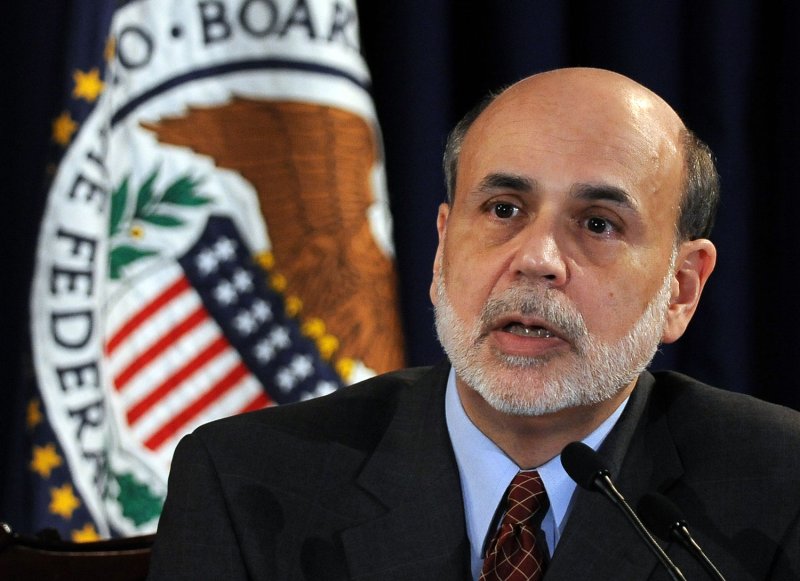Federal Reserve Board of Governors Chairman Ben Bernanke holds a news conference to answer questions after the release of the Federal Open Market Committee's monetary policy decisions at the Board's headquarters in Washington, DC, on April 27, 2011. This is the first such news conference on monetary policy. UPI/Roger L. Wollenberg |
License Photo
WASHINGTON, June 3 (UPI) -- Watchers of the U.S. Federal Reserve are speculating on the central bank's next move, given the recent slowdown of the economic recovery.
Economics Professor Phillip Swagel of the University of Maryland, a former Treasury Department official, said the bank's policymakers were "debating this furiously," referring to the option to initiate a third round of quantitative easing after the second round of security purchases -- called QE2 -- winds down at the end of June, The Hill reported Friday.
"The upsides to QE3 are very small. The downside is that the Fed could potentially lose its credibility," Swagel said.
Critics say the quantitative easing program created banks flush with cash, but that cash did not flow to the general economy.
"It's like the roach motel of economic policy. The money goes in and it never comes out," said Daniel Alpert, managing director of Westwood Capital LLC.
When the Fed stops purchasing securities, that doesn't end QE2, precisely. "The liquidity that's being created remains in the system," said Axel Merk, president and chief investment officer at Merk Investments.
Eventually, the Fed will need to figure out how to reduce the enormous portfolio it has built up in the past three years.
But that decision can wait. With the recovery slowing down, what options the Fed has left is a cause for concern.
"Everyone thought a few weeks ago it was impossible to have QE3, and now it becomes a real possibility," Merk said.










